This article was co-authored by Scott Nelson, JD and by wikiHow staff writer, Hannah Madden. Scott Nelson is a Police Sergeant with the Mountain View Police Department in California. He is also a practicing attorney for Goyette & Associates, Inc. where he represents public employees with a myriad of labor issues throughout the state. He has over 15 years of experience in law enforcement and specializes in digital forensics. Scott has received extensive training through the National Computer Forensics Institute and holds forensic certifications from Cellbrite, Blackbag, Axiom Forensics, and others. He earned a Master of Business Administration from the California State University Stanislaus and a Juris Doctorate from the Laurence Drivon School of Law.
There are 14 references cited in this article, which can be found at the bottom of the page.
This article has been viewed 126,607 times.
Predators can be lurking online or in the streets, but that doesn’t mean you have to be scared all the time. By learning a few basic safety rules, you can stay safe while you surf the internet or walk home from school. If you’re a parent, make sure you talk to your kids about setting boundaries and exiting uncomfortable situations so they know what to do if and when the time comes.
Steps
Internet Safety for Kids and Teens
-
1Set your social media pages to private. Sites like Facebook, Instagram, and Twitter all have different settings that you can use to limit the number of people on your page. Go into these settings and make your profile private to ensure only your followers or your friends can see what you post.[1]
- When you make Instagram or Twitter private, you can also monitor who follows you—and decline them as a follower if you don’t know them.
- Predators will sometimes look at your profiles online to learn more about you before chatting with you. The less information they can see, the better.
-
2Keep your full name, address, and phone number to yourself. If someone online is asking for your personal information, they might not have good intentions. Keep your personal details to yourself to keep yourself safe.[2]
- You should only give out your personal info to people you know in real life.
Advertisement -
3Use a screen name instead of your real name. When you create a social media account, try using a nickname or just your first name. That way, predators online won’t be able to learn your full name from just glancing at your profile.[3]
- For example, you could make your screen name “Izzy945” instead of Isabella McClain.
-
4Share your passwords with no one. Although it might seem like common sense, you should never give out your password to anyone online. If someone is asking for your password, they’re probably going to take control over your account, even if they seem friendly.[4]
- Sometimes, fraudulent websites will ask you to log in with your password, too. If you aren’t sure what the website is or why they’d need your password, don’t log in!
-
5Watch out for grooming behavior. Grooming is when someone pretends to be your friend, but slowly makes you feel more and more uncomfortable. If you’ve been chatting with someone for a while and they’re slowly starting to push your boundaries (like asking for pictures, sharing sexual content, or sending sexual messages), tell an adult right away.[5]
- It can be hard to spot grooming behavior as it happens to you. If you have any questions about messages you’re getting online, talk to a trusted adult.
-
6Avoid meeting up with people in real life. If you’ve been chatting with someone online and they suggest meeting up in person, it’s probably not safe. People often lie about who they are on the internet, and it isn’t safe to meet up with someone you only know online.[6]
- If someone is pushing you to meet up with them, tell a trusted adult.
- Predators will sometimes use tactics where they chat with you for a while and then ask you to meet up. Even if you’ve been talking to someone online for a long time, you don’t know who they actually are, so it’s not safe to meet them in person.
-
7Be careful when you talk with strangers online. If someone wants to talk to you and you have no idea who they are, ignore them or be careful. If you don't want to talk to them and they won’t stop messaging you, block them so they can’t contact you anymore.[7]
- Online predators will often message people using fake profiles, so look out for social media pages with 0 posts or 0 followers.
-
8Tell an adult if someone is making you uncomfortable. You could talk to your parents, a teacher, a counselor, or a family friend. They’ll help you figure out what to do about the messages you're getting.[8]
- Sexual messages, harassment, or asking to meet up in person are all things you should tell an adult about.
- They can also help you block people who are harassing you or sending unwanted messages.
Internet Safety for Parents
-
1Talk to your child about online predators. Predators will often use tactics where they make friends with your child before becoming inappropriate. Let your child know that they should be careful when they talk to someone online that they don’t know in real life, especially if they’re older.[9]
- You don’t have to scare your child, but you should make them aware of the dangers of the internet.
-
2Tell your child to absolutely never send pictures to someone they don’t know. Predators will sometimes ask for innocent pictures at first, then move onto more risque or inappropriate ones. Let your child know that if anyone asks them for photos of themselves, they should log off and tell you right away.[10]
- Even sending selfies can be dangerous, since it can let the predator know what your child looks like.
- For extra security, consider buying devices that don't include a camera, or disable the webcam on your devices.[11]
-
3Don't put parental controls on their computer. While kids do spend a lot of time on the internet, you can, as a parent, shouldn't invade their privacy. It can cause them to be more secretive about their devices. Tell them that if any time someone is bothering them, to tell you and that you can help. You can keep the computer in the living room where you can see what your child is doing.[12]
- Bark, Qustodio, Net Nanny, and Kaspersky Safe Kids are all types of downloadable parental control software.
- If your child is older that age 9, they shouldn't be monitored at all. Tell them about the dangers of online predators so they can make good decisions on their own.
-
4Tell your child to come to you with any problems. Children can be secretive about their online activities if they don’t feel comfortable talking to you about them. Let your child know that they can tell you about anything that makes them feel uncomfortable and that they won’t get in trouble if they do.[13]
- This is a good way to build trust between you and your child.
-
5Teach your child about healthy online relationships. Make sure your child knows the difference between chatting with friends and flirting with strangers. Ask them to be careful when talking to strangers online.[14]
- You don’t need to scare your child, but you can warn them about the dangers of talking to people they don't know. Make sure they be careful.
In Person Safety Tips
-
1Walk away if a stranger offers you anything. Predators might approach you with a piece of candy, a fun toy, or even a puppy. If someone wants to give you something and you don’t know who they are, get away from them as fast as you can.[15]
- Predators might also approach you to ask for help, like finding their lost dog.
-
2Run away if a car pulls up to offer you a ride. If you’re walking out in public and a car pulls up to offer you a ride, keep walking. If the person inside the car insists on giving you a ride, run away as fast as you can.[16]
- Try to get to a more public place with lots of people around.
- If you have a cell phone, call for help right away.
-
3Keep the door shut if you’re home alone. Chances are, whoever’s knocking probably needs to talk to an adult anyway! Don’t answer the door unless your parents are home to avoid a scary situation.[17]
- You should also avoid telling anyone that you’re home alone, just in case.
-
4Tell someone if anyone asks you to keep a bad secret. Secrets about eating dessert before dinner are harmless and fun. But secrets about sexual acts or inappropriate behaviors aren’t okay, and you should tell a trusted adult about them.[18]
- Even if you think you might get in trouble, you should still talk to a trusted adult about any secrets that make you feel uncomfortable.
-
5Walk away if anyone makes you feel uncomfortable. This includes family members, relatives, and strangers. If you ever feel weird about a conversation or an interaction with someone, say “no,” walk away, and tell a trusted adult.[19]
- You always have the right to say no to someone, even if they’re an adult.
- Always trust your gut. If something makes you feel even a little uneasy, try to exit the situation as soon as possible.
-
6Talk to a trusted adult if anything makes you feel uncomfortable. They can help you figure out what’s okay and what’s not okay. Reach out to your parents, an older sibling, a teacher, or a guidance counselor.[20]
- Someone touching you inappropriately or someone asking you to keep secrets about something sexual are things you should definitely tell an adult.
- If you’re a parent, let your child know that they can always come to you with any questions or concerns.
Expert Q&A
Did you know you can get premium answers for this article?
Unlock premium answers by supporting wikiHow
-
QuestionHow can we prevent child predators?
 Scott Nelson, JDScott Nelson is a Police Sergeant with the Mountain View Police Department in California. He is also a practicing attorney for Goyette & Associates, Inc. where he represents public employees with a myriad of labor issues throughout the state. He has over 15 years of experience in law enforcement and specializes in digital forensics. Scott has received extensive training through the National Computer Forensics Institute and holds forensic certifications from Cellbrite, Blackbag, Axiom Forensics, and others. He earned a Master of Business Administration from the California State University Stanislaus and a Juris Doctorate from the Laurence Drivon School of Law.
Scott Nelson, JDScott Nelson is a Police Sergeant with the Mountain View Police Department in California. He is also a practicing attorney for Goyette & Associates, Inc. where he represents public employees with a myriad of labor issues throughout the state. He has over 15 years of experience in law enforcement and specializes in digital forensics. Scott has received extensive training through the National Computer Forensics Institute and holds forensic certifications from Cellbrite, Blackbag, Axiom Forensics, and others. He earned a Master of Business Administration from the California State University Stanislaus and a Juris Doctorate from the Laurence Drivon School of Law.
Police Sergeant, Mountain View Police Department
-
QuestionHow can you protect yourself from predators?
 Scott Nelson, JDScott Nelson is a Police Sergeant with the Mountain View Police Department in California. He is also a practicing attorney for Goyette & Associates, Inc. where he represents public employees with a myriad of labor issues throughout the state. He has over 15 years of experience in law enforcement and specializes in digital forensics. Scott has received extensive training through the National Computer Forensics Institute and holds forensic certifications from Cellbrite, Blackbag, Axiom Forensics, and others. He earned a Master of Business Administration from the California State University Stanislaus and a Juris Doctorate from the Laurence Drivon School of Law.
Scott Nelson, JDScott Nelson is a Police Sergeant with the Mountain View Police Department in California. He is also a practicing attorney for Goyette & Associates, Inc. where he represents public employees with a myriad of labor issues throughout the state. He has over 15 years of experience in law enforcement and specializes in digital forensics. Scott has received extensive training through the National Computer Forensics Institute and holds forensic certifications from Cellbrite, Blackbag, Axiom Forensics, and others. He earned a Master of Business Administration from the California State University Stanislaus and a Juris Doctorate from the Laurence Drivon School of Law.
Police Sergeant, Mountain View Police Department
-
QuestionHow can I make sure my teen is safe on social media?
 Scott Nelson, JDScott Nelson is a Police Sergeant with the Mountain View Police Department in California. He is also a practicing attorney for Goyette & Associates, Inc. where he represents public employees with a myriad of labor issues throughout the state. He has over 15 years of experience in law enforcement and specializes in digital forensics. Scott has received extensive training through the National Computer Forensics Institute and holds forensic certifications from Cellbrite, Blackbag, Axiom Forensics, and others. He earned a Master of Business Administration from the California State University Stanislaus and a Juris Doctorate from the Laurence Drivon School of Law.
Scott Nelson, JDScott Nelson is a Police Sergeant with the Mountain View Police Department in California. He is also a practicing attorney for Goyette & Associates, Inc. where he represents public employees with a myriad of labor issues throughout the state. He has over 15 years of experience in law enforcement and specializes in digital forensics. Scott has received extensive training through the National Computer Forensics Institute and holds forensic certifications from Cellbrite, Blackbag, Axiom Forensics, and others. He earned a Master of Business Administration from the California State University Stanislaus and a Juris Doctorate from the Laurence Drivon School of Law.
Police Sergeant, Mountain View Police Department I think parents should always be the ones who create any social media accounts or online accounts for their children. That way, you can control the initial settings, and you can set up the username and password. You might also disable any webcam that comes on a laptop or tablet, or just buy devices that don't come with a webcam on them. As a parent, keep in mind that your child might not think that there's anything wrong with something they're doing online, even if it's dangerous. That's why it's important to closely monitor their online activity.
I think parents should always be the ones who create any social media accounts or online accounts for their children. That way, you can control the initial settings, and you can set up the username and password. You might also disable any webcam that comes on a laptop or tablet, or just buy devices that don't come with a webcam on them. As a parent, keep in mind that your child might not think that there's anything wrong with something they're doing online, even if it's dangerous. That's why it's important to closely monitor their online activity.
Warnings
- Report any illegal activity to the authorities right away.⧼thumbs_response⧽
- Your children might not trust you if you put parental controls on your computer⧼thumbs_response⧽
References
- ↑ https://www.plannedparenthood.org/learn/teens/bullying-safety-privacy/online-privacy-and-staying-safe
- ↑ https://kidshealth.org/en/parents/net-safety.html
- ↑ https://kidshealth.org/en/parents/net-safety.html
- ↑ https://www.plannedparenthood.org/learn/teens/bullying-safety-privacy/online-privacy-and-staying-safe
- ↑ https://internetsafety101.org/grooming
- ↑ https://www.understood.org/en/friends-feelings/child-social-situations/online-activities-social-media/9-ways-to-protect-your-child-from-online-predators
- ↑ https://www.fbi.gov/news/stories/stop-sextortion-youth-face-risk-online-090319
- ↑ https://edu.gcfglobal.org/en/internetsafetyforkids/staying-safe-from-online-predators/1/
- ↑ https://www.understood.org/en/friends-feelings/child-social-situations/online-activities-social-media/9-ways-to-protect-your-child-from-online-predators
- ↑ https://internetsafety101.org/predatorsrulesofengagement
- ↑ Scott Nelson, JD. Police Sergeant, Mountain View Police Department. Expert Interview. 2 April 2020.
- ↑ https://www.understood.org/en/friends-feelings/child-social-situations/online-activities-social-media/9-ways-to-protect-your-child-from-online-predators
- ↑ https://www.understood.org/en/friends-feelings/child-social-situations/online-activities-social-media/how-do-i-monitor-my-kids-online-activities-without-spying-on-them?_ul=1*1ecx0dz*domain_userid*YW1wLXQ2dkI0c1gxZzZSNzZmazd1ekNVN0E.
- ↑ https://www.nspcc.org.uk/what-is-child-abuse/types-of-abuse/grooming/
- ↑ https://kidshealth.org/en/parents/abductions.html
- ↑ https://www.madison-heights.org/265/Child-Abduction
- ↑ https://kidshealth.org/en/parents/abductions.html
- ↑ https://childmind.org/article/10-ways-to-teach-your-child-the-skills-to-prevent-sexual-abuse/
- ↑ https://www.childrensmn.org/2016/09/23/child-abduction-abuse-prevention-teaching-kids-stay-safe/
- ↑ https://www.childrensmn.org/2016/09/23/child-abduction-abuse-prevention-teaching-kids-stay-safe/
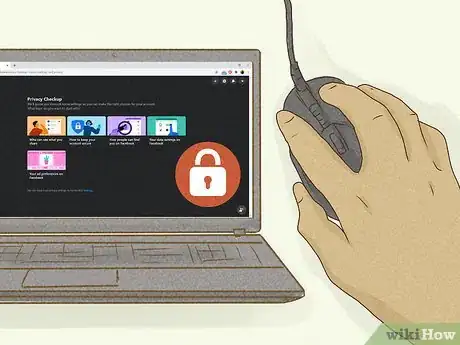
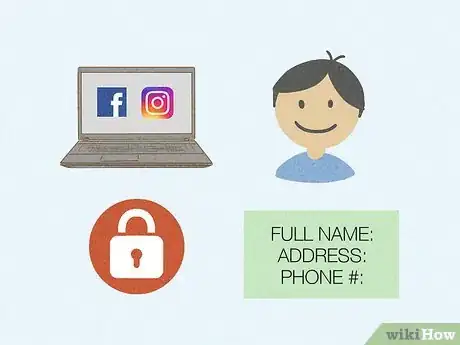







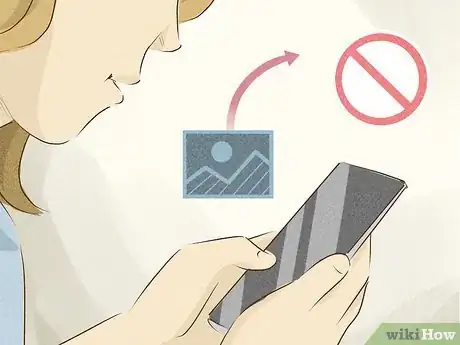

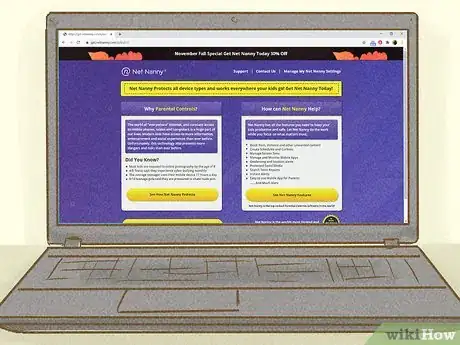

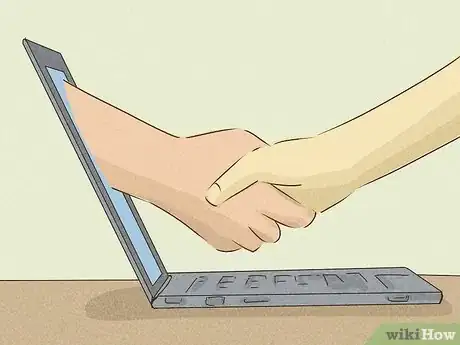
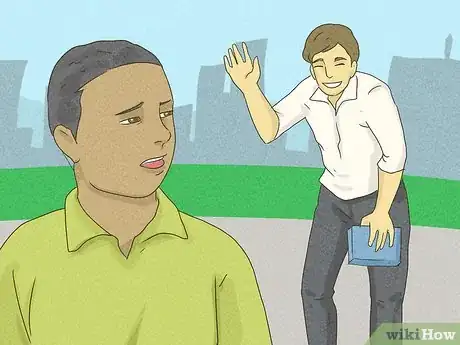

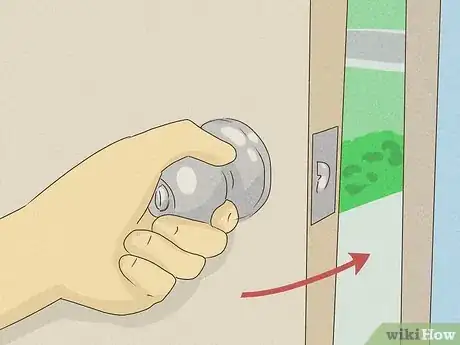

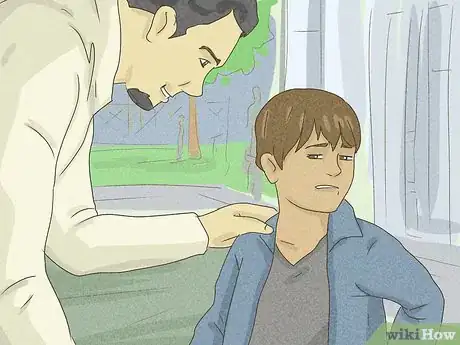




-Step-10.webp)





















-Step-10.webp)


































